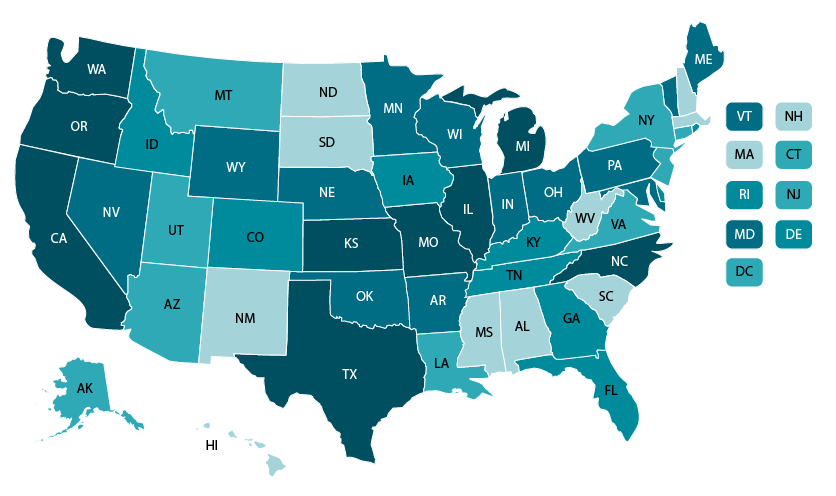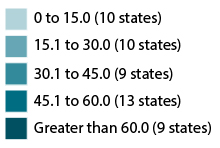Trends in Nursing Home Complaints (2016-2018)
The nursing home complaint process is a critical safeguard to protect vulnerable nursing home residents. The Centers for Medicare & Medicaid Services (CMS) relies upon each State's survey agency to respond to health and safety concerns raised by residents, their families, and nursing home staff. State agencies must investigate the most serious complaints on-site within certain timeframes. However, a previous Office of Inspector General (OIG) report found that a few States fell short in the timely investigation of the most serious nursing home complaints between 2011 and 2015. To complement this report, OIG published an interactive map that displays details on nursing home complaint trends between 2011 and 2015.
The new interactive map below updates this information for years 2016 through 2018. Specifically, it displays details on nursing home complaint trends between 2016 and 2018 for each State, including the number of complaints received and the number of the most serious complaints that a State investigated late. Click here for national trends.
This map accompanies OIG's 2020 report, "States Continued to Fall Short in Meeting Required Timeframes for Investigating Nursing Home Complaints: 2016-2018." This report examines whether States that fell short in timely investigation of the most serious nursing home complaints in 2015 have since improved and provides additional insights on States' nursing home complaint and investigation trends between 2016 and 2018.
Share This Map
In addition, an ongoing OIG evaluation is examining CMS's oversight of State survey agencies' performance.
View a text-based version of this data.
Rate of Complaints per 1,000 Nursing Home Residents
by State in 2018

Legend: Rate of Complaints per 1,000 Nursing Home Residents by State in 2018

Source: OIG analysis of ACTS data, 2019.
Definitions1
Immediate jeopardy complaints allege a situation that indicates that there continues to be an immediate risk of serious injury, harm, impairment, or death to a resident. State survey agencies are required to start an on-site investigation within two business days of receipt of complaint or incidence report.
Non-Immediate Jeopardy - High (High Priority) complaints allege a situation in which the provider's non-compliance with one or more Federal requirements may have caused harm that negatively impacts the individual's mental, physical, and/or psychosocial status and are of such consequence to the person's well-being that a rapid response by the State survey agency is indicated. State survey agencies must initiate an on-site survey within ten business days of prioritization.
1 During the period of our review (2016 - 2018), this provision of the State Operations Manual used "working days" in place of "business days." Effective July 19, 2019, CMS revised Chapter 5 under Rev. 191 and replaced "working days" with "business days."
